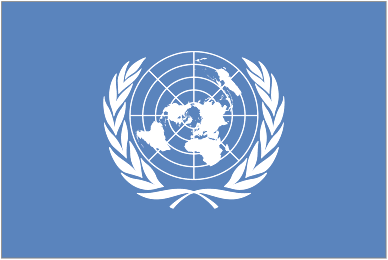
The United Nations human rights chief is urging religious and political leaders to do their utmost to restore calm in the wake of an anti-Islam film that has sparked protests in countries across the world.
“The film is malicious and deliberately provocative and portrays a disgracefully distorted image of Muslims. I fully understand why people wish to protest strongly against it, and it is their right to do so peacefully,” the UN High Commissioner for Human Rights, Navi Pillay, said in a news release.
“However, I utterly condemn the killings in Benghazi, and other violent and destructive reactions to the film and urge religious and political leaders to make a major effort to restore calm,” she added.
On Tuesday, the United States Consulate in the Libyan city of Benghazi came under attack, leading to the death of the US ambassador to the country, Christopher Stevens and three other diplomats, and left other people injured.
According to initial media reports, those responsible carried out the attack in protest against an anti-Islamic video produced by a US citizen in the state of California.
Demonstrations against the film first erupted in Egypt on Tuesday, when Islamist protesters scaled the US embassy walls in the capital, Cairo, and replaced the flag there with an Islamic one. The violence reportedly left more than 200 people injured.
On Thursday, demonstrators in Yemen stormed the US embassy compound, but were unable to break into the main building. The incident led to one death and injured 15 others. Other protests have been reported today in Sudan, Tunisia, Afghanistan, Lebanon, Bangladesh, Sri Lanka and the United Kingdom.
Ms. Pillay emphasized that the best way to deal with provocations such as the film was to ignore them.
“Deliberate and obnoxious acts of this type should be deprived of the oxygen of publicity,” she said, adding that she welcomed the Libyan Government’s efforts to bring those responsible for the attack in Benghazi to justice.
The High Commissioner also noted that there is a legal framework – in particular Articles 19 and 20 of the International Covenant on Civil and Political Rights – which offers strong protective measures to all forms of expression, while at the same time giving States the possibility to impose restrictions necessary for the respect of the rights and reputations of others.
Addressing a General Assembly forum on the promulgation of a ‘culture of peace’ at UN Headquarters in New York today, Secretary-General Ban Ki-moon noted the “terrible attacks and unrest” of recent days in Libya and elsewhere, apparently sparked, he said, by a “hateful, disgusting film.”
He also called it shameful to exploit the right to free expression to provoke bigotry and bloodshed, but deemed it equally wrong to exploit the resulting anger and feed “the cycle of recrimination and senseless violence.”
On Thursday night, a spokesperson for the Secretary-General said the UN chief was “deeply disturbed” by the violence in Libya and elsewhere in the Middle East and called for calm and restraint to end hostilities.
“[Mr. Ban] condemns the hateful film that appears to have been deliberately designed to sow bigotry and bloodshed,” the spokesperson said in a statement, which also stressed that at this time of tensions there is a need for “dialogue, mutual respect and understanding.”
The UN Assistance Mission in Afghanistan (UNAMA) also issued a statement earlier on Thursday in which it deplored the film, describing it as “insulting and inflammatory,” and stressing that defamation of religion in all forms is unacceptable. The Mission called on all Afghans to exercise restraint and reject calls to violence or vicious behavior.